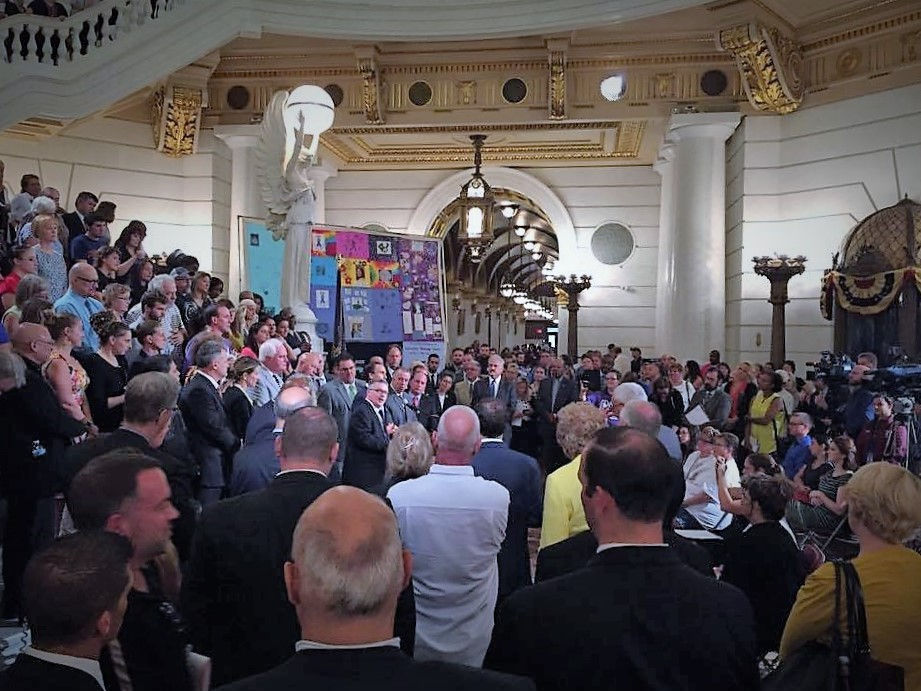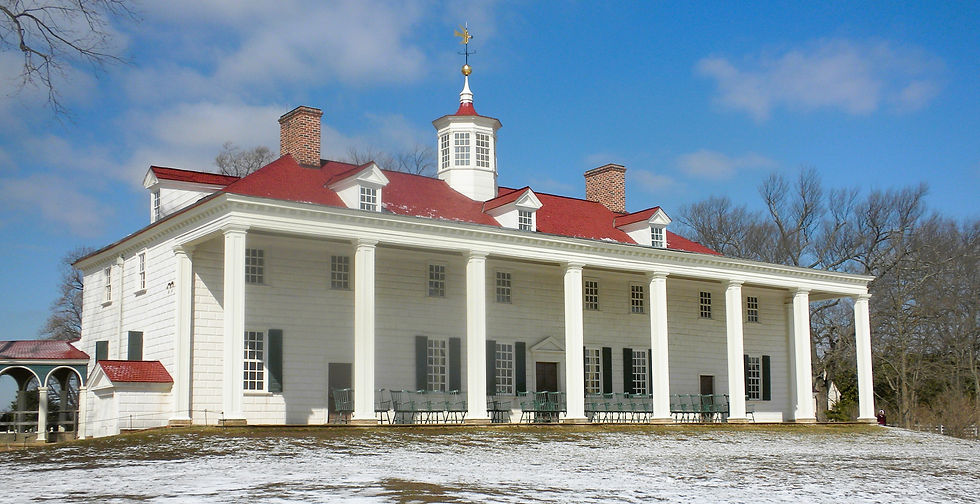Gratitude Friday – 9/3/21 Giants Whose Shoulders We Stand On
- Bill Stauffer

- Sep 3, 2021
- 4 min read

For those of you who may not be aware, September is National Recovery Month. As this link explains, National Recovery month was first established by SAMHSA in 1989 to celebrate addiction recovery. The initial focus was on the theme “treatment works.” This was well before the rise of the recovery movement. In that era, the focus of support efforts was on the acute care model, because that is all that existed. That began to change around a decade later as a direct result of advocacy from the recovery community. We now understand that recovery from addiction is a long-term process with a myriad of pathways that people use as they move into and to sustain recovery. For many of us, this leads to so strongly identifying with recovery that we form what is called a recovery identity. I confess, I am one such person.
This year’s recovery month theme is Recovery is for Everyone: Every person, every family and every community. There is also a day to honor those who do this work, National Addictions Professionals Day, on September 20th. Persons who work to serve individuals experiencing addiction are our unsung heroes. They show up, day in and day out. Just consider the Pandemic. Over the last 18 months, they went to work, exposed themselves and their families to COVID-19, all in the line of duty. Some even died as a result. Having worked on the public care side for several decades, I can tell you that these dedicated servants work long hours for pennies. I know of degreed people over the years whose families qualified for public assistance because reimbursement is so low and the administrative burdens so high. When I needed help in the mid-80s, I got it because of people dedicated to doing this very difficult work. Care access challenges, mounds of paperwork and unfunded administrative burden have become serious barriers to helping people get well. Grateful for all of you out there in the trenches who show up despite all of those challenges. You are my heroes.
Everything we have came from grassroots, recovery advocacy efforts. I became aware early on of the history of the publicly funded treatment. I learned of all the efforts that these recovering people and their allies went through in the 1970s to ensure care was there when I walked in the doors of the center in the mid 80’s. Later, I learned of the efforts federally of people like Harold Hughes who held hearings with actress Mercedes McCambridge in the US Senate. Here in Pennsylvania, State Representative Milton Berkes’s crowning life time achievement was “Berkes Bill.” The Controlled Substance, Drug, Device and Cosmetic Act 63 of 1972 it created, among other things our state funding system, the one that a few years later meant that there were doors for me to walk though. I found an interview with Representative Berkes in the PA House Archive Oral History Project. It is now PA Act 50 of 2010.
I was present at the first recovery rally held in our state capitol rotunda, it was organized by Dona Dmitrovic, who is the senior advisor on recovery at SAMHSA. She was the founding Director of PRO-A, the statewide recovery community organization of PA since 1998. The rally was in 2000 with the theme “treatment works.” I would end up running PRO-A years later. I will have the honor of speaking about the history of recovery advocacy from the seat of our state government on Recovery Advocacy Day on September 21st. These are these amazing patterns in our recovery history that circle around and build upon earlier efforts. Newcomers of today will take things in directions that at this moment are beyond our wildest dreams. Built on the work of those who came before us. We are part of this wonderous history.
We have such a rich history. Harold Hughes was a recovering truck driver with a deep booming voice. He became Governor of Iowa and then a US Senator. He used his lived experience and his office to call attention to our plight and our potential. His work changed everything. Milton Berkes was an army vet who served in the South Pacific during WWII. He never drank, but addiction captured his attention because of a lot of recovery advocates who educated him on our condition and our promise. Because of what he did here in Pennsylvania, we ended up with services and a ladder out of addiction into recovery. I got to personally thank him before he died. Two men who did great things. Dig a little deeper and all of their efforts grew out of the work of the grand dame of recovery advocacy, Marty Mann. Her advocacy on alcoholism as founder of the National Council on Alcoholism and Drug Dependence or NCADD in the 40’s, 50’s and 60’s set the stage for all the advocacy efforts that came afterwards.
This recovery month, I celebrate these giants, and countless others who saw what needed to happen and who have fought for decades to ensure services and support were available for future generations. I am grateful for those visionaries who twenty years ago realized we needed to shift the paradigm from addiction to recovery so that millions of us can recover out loud and not have to hide in shame. I am grateful for the opportunity to do groundbreaking work on stigma with our friends at Elveyst and RIWI using game changing technology that will allow our nation to develop data driven strategies to address stigma that have not been possible before now. I am grateful for recovery and the opportunity to do things that have meaning and value to my time here on earth.
What are you grateful for today?




Comments